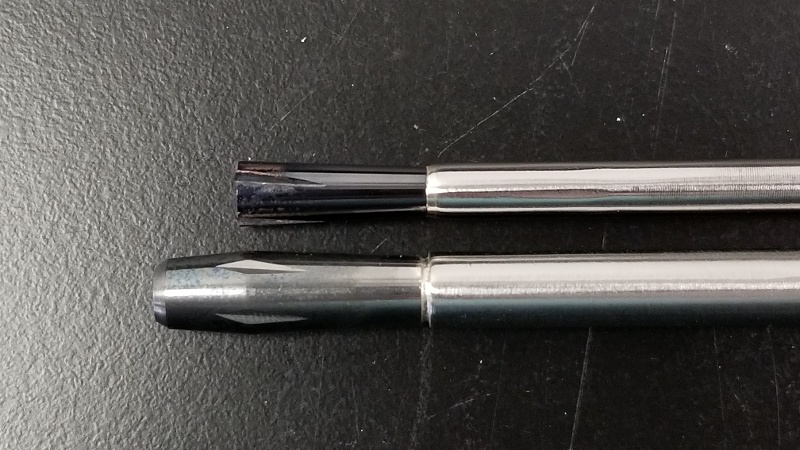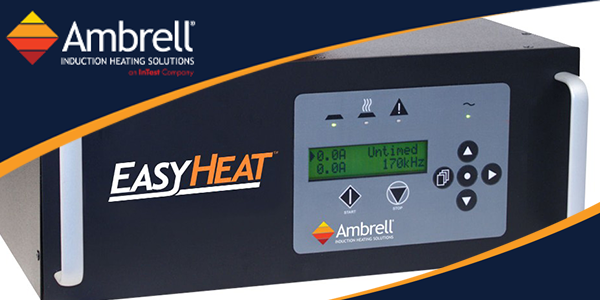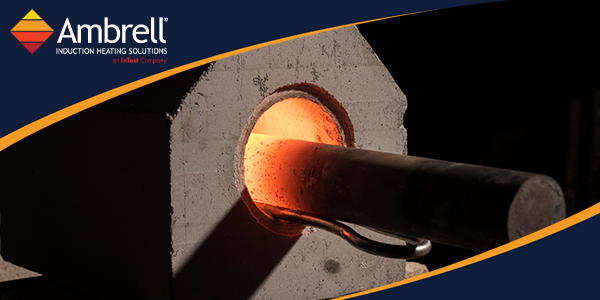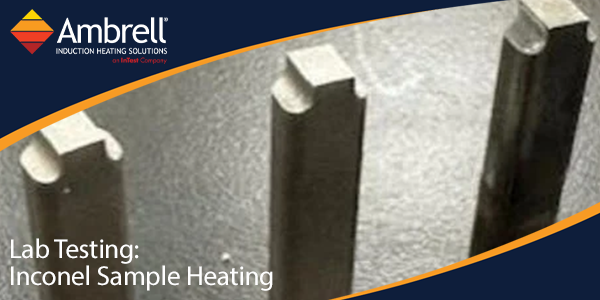Removing Rubber Bonded to Steel Using Induction Heating
Objective Removing rubber that has been permanently bonded to steel or other ferrous substrates can be a challenging and time consuming process....
Processes
Processes: More
Processes: More

Industries:
Industries: More
Industries: More
Industries: More

Products:
Products: More
Services:
Services: More

Learn:
Learn: More
About:

1 min read
Brett Daly
11/18/19 1:59 PM

A company that manufactures, sharpens, repairs and modifies tooling turned to THE LAB at Ambrell. They were torch brazing carbide inserts into tubes but needed a more consistent heating method. They manufacture modest quantities of parts so their concern was quality of the joint, not heating time.
It was determined that an EASYHEATTM 2.4 kW, 150-400 kHz induction heating system would be the right system for this application. A custom-designed single position multi-turn helical coil was built to generate the required heat for the application. The part needed to be heated to 649 °C (1200 °F). It took approximately four minutes to heat the assembly to temperature and braze it uniformly.
The application achieved the client's objective of receiving consistent, repeatable heating. Torch heating is dependent on operator skill and consistency, so induction offers a considerable advantage. Additionally, induction is precise and doesn't introduce unnecessary heat into the work environment. The end result was that brazing with induction prevented defects that the client was seeing with torch heating. 

Objective Removing rubber that has been permanently bonded to steel or other ferrous substrates can be a challenging and time consuming process....

In defense manufacturing, there is little margin for error. Components must meet exacting specifications, perform reliably in extreme environments,...

Overview When working with high-performance alloys like Inconel, achieving precise, repeatable heating is critical—especially in research and...